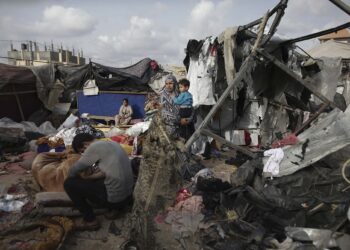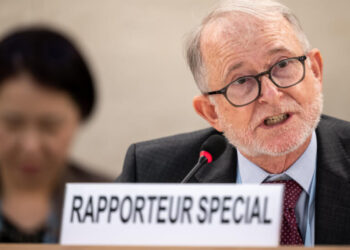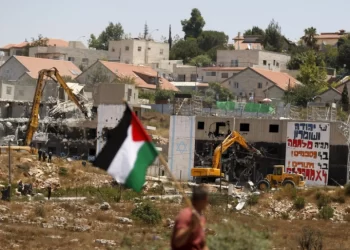Human Lives Human Rights: FIFA’s recent evaluation of Saudi Arabia as a potential host for the 2034 men’s World Cup has sparked significant controversy, with critics labeling the analysis as a whitewash of the country’s human rights situation. Human rights advocates express grave concerns that the report fails to include critical commitments aimed at protecting workers from exploitation, safeguarding residents from eviction, and ensuring the safety of activists. As the selection process for the upcoming World Cup progresses, many fear that FIFA may inadvertently become complicit in exacerbating the existing human rights violations in Saudi Arabia.
Concerned observers stress the urgent need for comprehensive reforms to address Saudi Arabia’s human rights landscape. Without proactive measures, there is a strong likelihood that the 2034 World Cup could be marred by issues of exploitation, discrimination, and repression — all too common in the region.
In a related matter, FIFA has faced scrutiny over its long-delayed independent report regarding the treatment of migrant workers connected to the 2022 World Cup in Qatar. This report, which FIFA has kept under wraps, indicates that the organization bears a responsibility to provide remedies, including compensation, for the many workers who experienced various forms of abuse. This position aligns with the calls from human rights organizations, labor groups, and even FIFA’s own human rights sub-committee, which have long urged for accountability and redress.
On the same day that FIFA released this significant report, it also introduced its Legacy Fund for the 2022 World Cup. Critics have pointed out that this fund notably lacks provisions for compensating affected workers, raising questions about FIFA’s commitment to addressing past abuses.
FIFA rated Saudi Arabia as a ‘medium’ risk in its human rights evaluation, a designation that stands in stark contrast to evidence presented by Amnesty International and the Sports & Rights Alliance. These organizations have noted that serious human rights concerns remain unaddressed in the bid’s strategies. Furthermore, reports criticizing FIFA’s independent human rights assessment suggest it omitted vital issues, raising alarms among advocates for change.
As organizations and activists continue to push for FIFA to take responsibility for the workers impacted during the Qatari World Cup, the organization’s hesitance to act remains a point of contention. The recently released independent report, made public on November 29, 2024, emphasizes the need for FIFA to engage in remedial actions alongside other stakeholders. Without genuine efforts for compensation and a commitment to reforming human rights practices in Saudi Arabia, many believe the lessons of the past may go unheeded, leaving vulnerable workers once again facing the consequences. As the footballing world looks towards the 2034 World Cup, advocates for change remain resolute in their calls for justice and accountability.


















